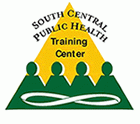
Collaboration: The Key to Public Health System Improvement
Course Description:
Public health is no longer just what governmental agencies do and it is no longer advisable to think public health professionals have done their jobs in providing silos of programs. For states and communities to be successful in creating conditions in which people can be healthy in a sustainable way, collaboration is essential. Collaboration, we think we do it...yet few actually do. This course covers why collaboration is essential to public health, how it differs from other strategies, what is needed for successful collaboration, what common pitfalls and challenges often occur and how to address them, as well as assuring results and keeping momentum. Additionally, it will cover resources available to support your efforts and the importance of celebrating successes and sharing the lessons learned. The course includes a workbook which contains exercises and content handouts to support the learner. This course will be extremely valuable to those involved in a community collaborative effort or those wanting to initiate one.
Target Audience
Academic Faculty/Staff, Federal Government Employees, State Government Employees, Local Government Employees, Non-Government Employees and Students
Learning Objectives
- Identify why collaboration is key to public health
- Increase understanding of what collaboration is and how it differs from other strategies
- Identify what is needed for success
- Understand common challenges and how to deal with them
- Identify strategies to maintain progress
- Identify how the learning can support collaboration in your community
Instructors:

Thomas and Kathleen C. Milne
Kathleen C. “Casey”, Milne is a principal and founder of Milne & Associates, LLC, a national consulting firm based in Portland, OR, whose mission is to create “Health Communities”. Casey has a life long commitment to improvement which is reflected in her work. She has led three highly successful projects with APHL focused on the development and testing of performance standards for state public health laboratory systems; the intent being system improvements. Casey has also worked on a number of projects pertaining to bioterrorism and public health preparedness, has co-facilitated assessments of state and local health departments using the National Public Health Performance Standards Program tool. She has participated as faculty and guest lecturer for public health leadership institutes, has helped public health organizations do strategic systems and facilities planning. The company has done work with national, state, and local public health agencies and associations, private and private not-for-profit organizations, academic institutions, and foundations. Projects have included work with Nuclear Threat Initiative, Centers for Disease and Control, ANSER, Department of Health and Human Services, Denver Health, Oregon Department of Human Services – State Public Health and others. She is on the Board of Directors of Health Bridges International and the Advisory Board of Oregon Health Forum.
Prior to Milne & Associates, LLC, Casey was Director of Quality Improvement at RAND and George Washington University School of Public Health’s Center to Improve Care of the Dying. She has served as faculty for a number of collaboratives with the Institute for Healthcare Improvement and was a frequent lecturer for Georgetown University, and George Washington University.
In 1985, Casey founded one of the nation’s first comprehensive care/case management firms where she served as President/CEO for 15 years. In 1992, Project Connect, a population based care management program was developed for Southwest Washington’s Healthy Options, a Medicaid managed care program. The program received Best Practice acknowledgement from HCFA in 1994. While at Multnomah County Health Department prior to 1985, Casey held a number of management positions and was active in state and national public health boards including the Conference of Local Health Officials, Oregon Public Health Nursing Directors, Oregon Public Health Association and the American Public Health Association.
Thomas Milne is a principal with Milne & Associates, LLC, a national public health consulting firm based in Portland, OR, that works with public and private organizations to improve the health and well being of communities. The mission of the firm is Healthy Communities. The company works to improve capacity and performance of organizations focused on public health, leading to improved health and well-being in communities. Since joining the firm in late 2002, Milne has led a project that developed a policy framework and operational master plan for a large metropolitan health department, has worked on a number of projects pertaining to bioterrorism and public health preparedness, has co-facilitated assessments of state and local health departments using the National Public Health Performance Standards Program tool, has participated as faculty and guest lecturer for public health leadership institutes, has helped public health organizations do strategic systems and facilities planning, and has helped create performance measures for state public health laboratory systems. The company has done work with national, state, and local public health agencies and associations, private not-for-profit organizations, academic institutions, and foundations. Tom also served as a member of the DHHS Secretary’s Council on Public Health Preparedness.
From 1998 through 2002, Milne was the executive director of the National Association of City and County Health Officials (NACCHO). NACCHO serves the 3,000 local health departments in the country, providing a broad range of membership services, national policy advocacy and cutting edge tools and services for local practitioners. During that tenure, he served on several national committees and boards addressing such issues as workforce development, bio-terrorism, public health identity, academics and leadership. Prior to NACCHO, Tom served for 15 years as the executive director of the SW Washington Health District, a three-county public health department in Washington State. While there, he led the development of a dynamic healthy community process that received national attention and continues to operate today. Tom was a member of the steering committee that developed the innovative Public Health Improvement Plan in Washington State and served on a variety of national, state, and local boards relating to issues including HIV/AIDS, public health standards, managed care, and higher education. Tom was a scholar in the inaugural year of the national Public Health Leadership Institute.
Available Credit
- 5.00 Participation/CETulane Professional and Continuing Education (PaCE) awards 5.00 hour(s) of credit for completing Collaboration: The Key to Public Health System Improvement
Price
Required Hardware/software
System Settings
This course is designed to work most effectively if your computer and internet connection meet certain minimal requirements. This course can be accessed using a Windows 10 PC or a Mac with High Sierra1, Mojave, or Catalina. Pop-up blockers should be disabled when viewing the course. Internet Explorer 11 (for Windows 10), or the current version of Google Chrome, Mozilla Firefox, or Apple Safari (for Windows 10 and or Mac) is required. Many of our courses require Java and JavaScript enabled.
Links to External Websites
Links to websites outside this course will open in a new window or tab. Some browsers may minimize the course window. If this occurs, maximize the course window to return to the course.
Adobe Acrobat Reader (for desktops and laptops)
Adobe Acrobat Reader is required to access some documents in this course. If you need to download a free copy of Acrobat Reader, click here.
Internet Connection Speed
A minimum download speed of 1.5 Mbps is recommended for an optimal experience, which is commonly the speed associated with a basic DSL or a cellular/satellite connection. A faster connection, such as cable or fiber service, with further enhance your online experience. A Wi-Fi connection is generally acceptable, but it is dependent upon one of the two services mentioned above. You can check your internet connection speed at http://www.speedtest.net/.

 Facebook
Facebook X
X LinkedIn
LinkedIn Forward
Forward